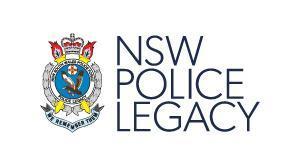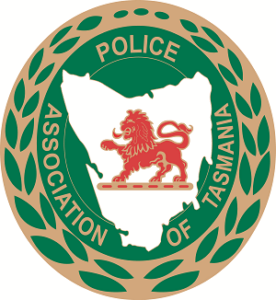Overview
The Biology of Trauma
An explanation of what happens in the body when we experience stress and how that relates to the ‘mind/body’ connection. We often think we can control the mind by being resilient however what really happens when the body does what it is build to do by our biological fight/flight/freeze stress response?
Burnout, the ingredients that cause stress
An outline of stressors that come with the job to assist in understanding why police are under the pump and the way triggers impact reaction versus response. This includes how the organization impacts police resilience.
The medical model verses person centred care
An explanation of the differences between psychiatry, psychotherapy and counselling to assist police and their families to understand the appropriate care to support their individual needs by making an informed choice.
Talking about Suicide
A sensitive conversation around suicidal ideation, which is an ultimate challenge for us all, how this can manifest and what to do if you, a family member, friend or colleague is struggling.
Reaching out for help
What are the options and how can we empower ourselves to live our best life.
Emotional awareness for managers
Information around how to identify and approach staff who are showing signs of burnout. A look at language and sensitivity when speaking with team members and how to use a person-centred approach rather than the penal system.
The role of Chaplains
An open discussion regarding the work of police chaplains and chaplaincy in general and how chaplains can be of support to serving and former police as well as how they assist and support families. This can include assisting when mental health issues arise as well as family crises, relationship breakdown and where there is illness or a death in the family.
Step-By-Step
Mental health professional support
Your doctor can refer you to mental health professionals including:
• psychiatrists
• psychologists
• counsellors
• social workers
• occupational therapists.
You can read about the different types of mental health professionals on the health direct website.
You can also use their find a health service tool to find one near you.
A mental health treatment plan lets you claim up to 20 sessions with a mental health professional each calendar year.
To start with, your doctor or psychiatrist will refer you for up to 6 sessions at a time. If you need more, they can refer you for further sessions. Health professionals set their own fees, so we may only cover some of the cost. Ask how much you’ll pay and what you’ll get back from us when you make your appointment. If they bulk bill, you won’t have to pay anything. If you have private health insurance, you may be able to get some money back. You can check with your insurer.
Help with costs
A mental health treatment plan lets you claim up to 20 sessions with a mental health professional each calendar year.
To start with, your doctor or psychiatrist will refer you for up to 6 sessions at a time. If you need more, they can refer you for further sessions. Health professionals set their own fees, so we may only cover some of the cost. Ask how much you’ll pay and what you’ll get back from us when you make your appointment. If they bulk bill, you won’t have to pay anything. If you have private health insurance, you may be able to get some money back. You can check with your insurer.
Rural and remote support
If you live in a remote area, it might be hard to see a mental health professional. You may be able to have a telehealth video consultation instead. You can claim for video consultation sessions with a mental health professional.
Ask your GP or mental health professional if they offer this service. You can also search the find a health service tool on the healthdirect website for mental health telehealth services.
Helpful Links
Content for pathways to help
 14 Nov 2022
14 Nov 2022
National State Police Retired Associations and Support Networks
Staying connected to the police family by joining your local retired and former police association may be helpful in maintaining social connection and positive mental health outcomes. Each state jurisdiction has a retired and former police association where regular monthly meetings and social events assist with staying in touch with former colleagues.
 14 Nov 2022
14 Nov 2022
National State Police Unions
All Australian Police jurisdictions have Police Unions who provide Industrial Relations, Financial and in some state’s welfare and mental health support and services. Assistance for issues relating to workers compensation, legal matters, necessitous circumstances, and career transition may also be available through your state union. Associate membership for former officers is another way to stay connected to support and services post policing
 04 Jan 2022
04 Jan 2022
New Safe Haven service for Illawarra and Shoalhaven to help those in suicidal crisis
For people who are in crises this safe haven offers a drop in centre staffed by peer workers as an alternative to attending Hospital.
 03 Apr 2022
03 Apr 2022
New South Wales Police Force
Each individual state police jurisdictions will have mental health services for serving police which should include an Employee Assistance Program (EAP) along with other specific services. This may include EAP for transitioning police, former police up to 12 months and services for families. Career Transition services may also be included in some jurisdictions as moving into a new career after serving in the police force impacts mental health outcomes.
 03 Apr 2022
03 Apr 2022
Northern Territory Police Force
Each individual state police jurisdictions will have mental health services for serving police which should include an Employee Assistance Program (EAP) along with other specific services. This may include EAP for transitioning police, former police up to 12 months and services for families. Career Transition services may also be included in some jurisdictions as moving into a new career after serving in the police force impacts mental health outcomes.
 03 Apr 2022
03 Apr 2022
Northern Territory Police Legacy
Police Legacy provide professional and compassionate support to families who have suffered a loss through the provision of benefits and services. Children who have lost a parent may benefit from camps, scholarships, trust funds and regular social engagement which is also extended to partners and parents. Each jurisdiction has independent services which may differ from state to state.
 03 Apr 2022
03 Apr 2022
NSW Government Medicare mental health treatment plans
The first step to take when feeling overwhelmed or experiencing those niggling feelings of something isn’t quite right is to visit your GP. A general chat about your overall physical and mental health may indicate further investigation is warranted. This may include a series of tests to rule out physical issues and/or completing a mental health assessment. If your GP feels it would be helpful, you will be given a mental health plan and a referral to see a psychologist or psychiatrist.
 17 Nov 2021
17 Nov 2021
NSW Mental Health Commission
The Mental Health Commission provides Australia wide comprehensive services and resources for anyone seeking support and information about helplines, live chat, forums, GP’s, psychologists and psychiatrists, mental health plans, community support, treatment services, residential mental health services including alcohol and drugs, diversion support programs and information regarding peak bodies and advocacy services.
Leisa Doherty’s story assists partners of serving and former police who are struggling to understand the impact of policing on their partner and family.
 03 Apr 2022
03 Apr 2022
NSW Police Career Transition Program
In partnership with EML, the NSW Police Force provides career transition services and advice including the More than a Cop program, events, financial, health and support services to assist police who are unable to return to work and who are transitioning out of policing.
 03 Apr 2022
03 Apr 2022
NSW Police Family Support Officers
Information and coordination of support services for family members of employees of the NSW police force who are injured or unwell. The Family Support Officers may assist with access to the employee assistance program, police chaplains, peer support, police association and police legacy programs, workers compensation information and referrals to appropriate support networks.
NSW Police income protection - TAL
Serving police in each state pay into individual state insurance, workers compensation, superannuation and income protection schemes. Assistance during times of injury, Illness, death, or career transition are available by contacting your appropriate state provider.
 03 Apr 2022
03 Apr 2022
NSW Police Legacy
Police Legacy provide professional and compassionate support to families who have suffered a loss through the provision of benefits and services. Children who have lost a parent may benefit from camps, scholarships, trust funds and regular social engagement which is also extended to partners and parents. Each jurisdiction has independent services which may differ from state to state.
NSW Police Pre 1 April 88 - Allianz State Superannuation Scheme
Serving police in each state pay into individual state insurance, workers compensation, superannuation and income protection schemes. Assistance during times of injury, Illness, death, or career transition are available by contacting your appropriate state provider.
 03 Apr 2022
03 Apr 2022
NTPA: Northern Territory Police Association
All Australian Police jurisdictions have Police Unions who provide Industrial Relations, Financial and in some state’s welfare and mental health support and services. Assistance for issues relating to workers compensation, legal matters, necessitous circumstances, and career transition may also be available through your state union. Associate membership for former officers is another way to stay connected to support and services post policing.
 03 Apr 2022
03 Apr 2022
PANSW: Police Association of New South Wales
All Australian Police jurisdictions have Police Unions who provide Industrial Relations, Financial and in some state’s welfare and mental health support and services. Assistance for issues relating to workers compensation, legal matters, necessitous circumstances, and career transition may also be available through your state union. Associate membership for former officers is another way to stay connected to support and services post policing.
 03 Apr 2022
03 Apr 2022
PASA: Police Association of South Australia
All Australian Police jurisdictions have Police Unions who provide Industrial Relations, Financial and in some state’s welfare and mental health support and services. Assistance for issues relating to workers compensation, legal matters, necessitous circumstances, and career transition may also be available through your state union. Associate membership for former officers is another way to stay connected to support and services post policing.
 03 Apr 2022
03 Apr 2022
PAT: Police Association of Tasmania
All Australian Police jurisdictions have Police Unions who provide Industrial Relations, Financial and in some state’s welfare and mental health support and services. Assistance for issues relating to workers compensation, legal matters, necessitous circumstances, and career transition may also be available through your state union. Associate membership for former officers is another way to stay connected to support and services post policing.

 Exit
Exit



